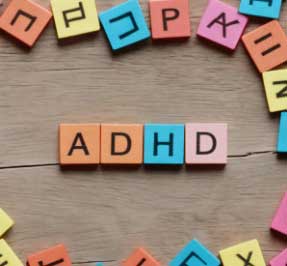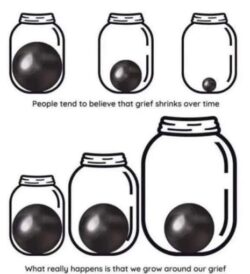The More You Cry, the Less You Have to Pee
That’s a favorite quote of my Dad’s, who was always pulling out some classic one-liners. I’ll use his line with my clients sometimes and it usually gets a good laugh out of them, although my intention for using the line is to encourage clients to cry in our sessions.
 But why do so many people need encouragement to cry when it should come so naturally to us? All babies cry. I mean, that’s how we enter the world, crying. Boy babies cry, girl babies cry, Russian babies cry, Argentinean babies cry. Where along our human evolution did it become not okay to cry? When and why did it become a sign of weakness instead of a sign that we’re in some kind of pain or, in some instances, feel extreme joy?
But why do so many people need encouragement to cry when it should come so naturally to us? All babies cry. I mean, that’s how we enter the world, crying. Boy babies cry, girl babies cry, Russian babies cry, Argentinean babies cry. Where along our human evolution did it become not okay to cry? When and why did it become a sign of weakness instead of a sign that we’re in some kind of pain or, in some instances, feel extreme joy?
Some Interesting Statistics
Here are the results of an interesting survey conducting in 2010 by Cosmo and AskMen.com, who asked their readership, over 100,000 men and women, their thoughts about crying.
75% of women said they cry at least once a month, with 33% of women crying at least once a week. Additionally, 99% of women believe that real men cry.
And what did the men have to say?
Almost 5% of men said “real” men never cry, ever. Like, no matter what the reason. Almost 39% of the male respondents felt crying should only be in response to tragedies, like the death of a loved one, while 27% said its okay for a man to get emotional at any time. The remaining 29% said its okay for a guy to cry whenever, just as long as he doesn’t do it in public.
Why You Should Cry
Neuroscientist and tear researcher (yes, that’s a real moniker) Dr. William H. Frey II, PhD, director of the Alzheimer’s Disease Research Center at Regions Hospital in St. Paul, Minnesota, has actually spent 15 years studying the effects of crying and has concluded that it is not only a natural human response to strong emotions, it’s also a very healthy response that reduces stress and can even contribute to reducing the risk of cardiovascular disease and other stress-related disorders.
Crying has also been found to reduce blood pressure, and our tears have the ability to remove toxins from our body. And speaking of toxins, Manganese is a mineral which affects a person’s mood and is found in up to 30 times greater in concentration in tears than in blood serum. The simple act of crying reduces the body’s manganese level and that is a good thing.
Emotional Breakthroughs
I encourage people to cry and I love it when there’s crying in a session; it tells me that something is moving, changing. We’re getting past something; like water over a dam. But many of my clients feel “weird” about crying in a session. They focus on the fact they’re making a funny and rather messy face instead of the fact they are having an emotional breakthrough, which is a really really really wonderful thing.
Crying, whether it looks pretty or not, means we’re getting in touch with our feelings. Life is not a series of events so much as it’s a series of our feelings regarding those events. When we stop ourselves from crying, we deny our humanity and connection to our own lives, and this is entirely detrimental to our mental and emotional well-being.
Achieving any kind of self awareness requires us to be brave enough to feel our pain and disappointments. Witnessing my clients moving through their pain is often hard for me, but I know their personal journey is one of growth and strength.
Getting in touch with our sadness, letting go of habits and processes that no longer work for us, and yes, having a good cry, is a most rewarding experience and one that ultimately leads us to a richer, fuller and happier life. And if crying more means not having to get up at 2AM to pee, I’m all for it.
Devon is a Licensed Mental Health/Substance Abuse Counselor, Personal Life Coach, Certified Personal Trainer, and a nationally certified teacher. She is committed to helping young people be their highest selves in all areas: body, mind, and spirit. Her expertise, enthusiasm, energy and educational background serve to create a unique blend of services and techniques employed to help you reach your goals. For counseling sessions, coaching, or training, please contact her at 505.469.0779 or he***************@***il.com.



